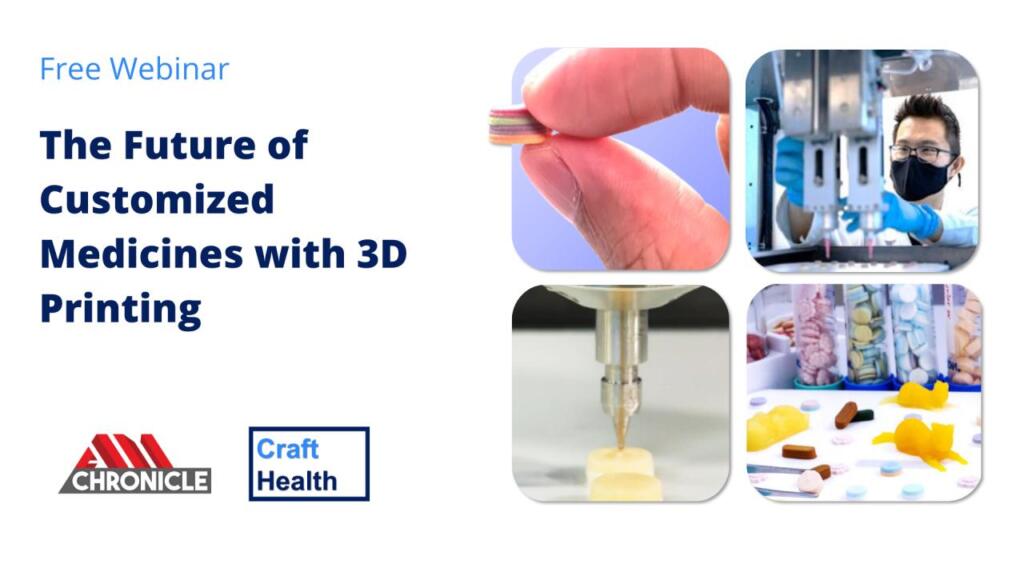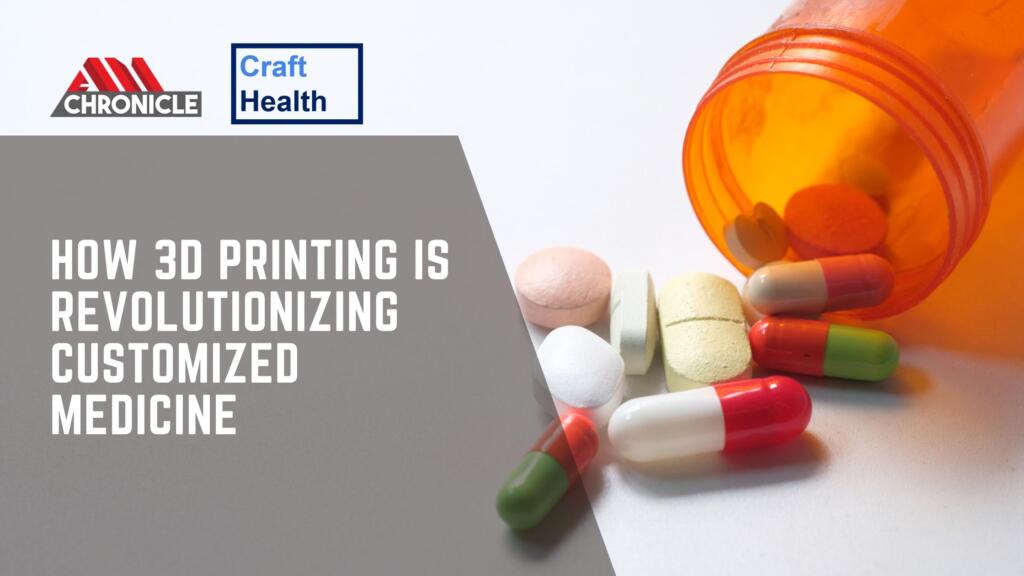In today’s rapidly advancing world of precision healthcare, the limitations of traditional pharmaceutical manufacturing are becoming more apparent. Standardized tablets and capsules—products of mass manufacturing—no longer meet the needs of a population increasingly seeking tailored medical solutions. The future lies in customized medicine: therapeutics designed specifically for an individual’s unique biology, lifestyle, and medical history.
Table of Contents
Chronic illnesses, aging populations, pediatric and geriatric care—all demand personalized solutions that consider dosage precision, combination drugs (polypharmacy), specific drug release profiles, and patient-friendly formats like gummies or chewables. Traditional manufacturing processes, focused on efficiency and volume, fall short when it comes to delivering these high-mix, low-volume medications.
3D Printing in Pharma
In pharmaceutical applications, 3D printing brings a whole new dimension to drug formulation and delivery. Technologies such as fused deposition modeling (FDM), semi-solid extrusion, and inkjet printing enable the production of complex drug geometries and personalized dosage forms that were previously impossible using conventional methods. These methods allow for fine-tuning the pharmacokinetics of drugs, ensuring that each patient receives the right drug, at the right time, in the right form.
Notably, 3D printing also supports the development of multi-drug pills—tablets containing multiple active pharmaceutical ingredients with varied release profiles. This is particularly beneficial for patients with chronic illnesses who take multiple medications daily. It improves medication adherence while simplifying treatment regimens. Moreover, 3D printed pills can be engineered to dissolve quickly for rapid onset, or slowly for sustained release, based on the patient’s therapeutic needs.

On the personalization front, 3D printing enables on-demand compounding of medications, automatic drug formulation, and even tailored veterinary medicines. In drug development, it streamlines clinical trials, enhances formulation optimization, and supports pre-clinical studies and fluid sampling with unmatched precision. Perhaps most notably, 3D printing brings pharmaceutical solutions to hard-to-reach areas such as space missions, emergency care units, and disaster zones, where traditional supply chains fall short. This multi-dimensional utility underscores why 3D printing is not just an innovation but a necessary evolution in modern medicine.
This is where 3D printing steps in as a transformative technology. Just as it has revolutionized industries such as aerospace and automotive, additive manufacturing is now reshaping healthcare—particularly in the realm of pharmaceuticals.
Singapore-based Craft Health exemplifies this revolution. Their integrated platform is built for creating customized medicines and supplements, offering unmatched precision and flexibility. Key innovations include:
- CraftMake: A 3D printer using semi-solid paste extrusion—no heat, no UV—making it ideal for temperature-sensitive drugs.
- CraftControl: A GMP-compliant, user-friendly software for operating multiple printers without any coding skills.
- CraftBlends: FDA GRAS excipient formulations enabling various drug release profiles.

These technologies allow for on-demand, scalable, and regulation-compliant production of personalized medicines—whether for clinical trials, pediatric patients, or complex treatment regimens.
More Than Just a Pill
The impact goes far beyond convenience. With 3D printing, medicines can be designed to deliver precise doses with less than 1% variation, incorporate multiple drugs in a single pill, and be manufactured without molds or minimum order quantities. These advances offer significant cost advantages and operational ease for pharmacies, hospitals, and R&D labs alike.
With breakthroughs in AI diagnostics, genomics, and digital health tools, we’re now better equipped than ever to understand what individual patients need. 3D printing closes the loop by making it possible to efficiently, safely, and affordably produce exactly what each patient requires.

Free Webinar: Join Us at Free Webinar on “The Future of Customized Medicines with 3D Printing” on Fri, Apr 25, 2025, 4:30 PM IST
As healthcare moves towards a more patient-centric model, the integration of 3D printing in pharmaceutical manufacturing stands out as a powerful enabler of personalized medicine. It not only addresses the urgent need for flexibility and precision in drug formulation but also paves the way for innovations that improve patient adherence, outcomes, and overall experience. With platforms like Craft Health leading the way, the vision of truly customized therapies is no longer a distant dream—it’s becoming a reality.
Now is the time to embrace this transformation. Join us on April 25 to discover how 3D printing is shaping the next generation of medicine—designed for individuals, delivered with precision.


